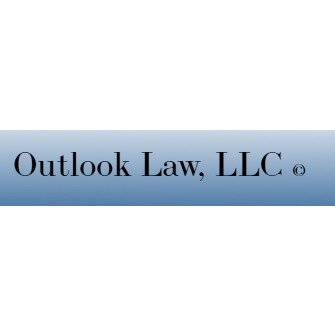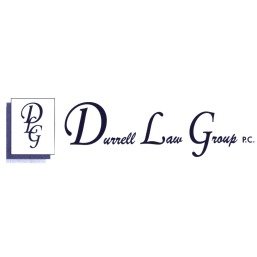Best Nonprofit & Charitable Organizations Lawyers in Anchorage
Share your needs with us, get contacted by law firms.
Free. Takes 2 min.
List of the best lawyers in Anchorage, United States
About Nonprofit & Charitable Organizations Law in Anchorage, United States
Nonprofit and charitable organizations play a crucial role in supporting community needs and promoting social causes in Anchorage, United States. These organizations are typically formed to serve public or community purposes, and they often qualify for tax-exempt status under federal and state laws. The legal framework governing nonprofits in Anchorage includes regulations on formation, operations, management, compliance, and dissolution. This ensures that these organizations operate effectively, transparently, and in alignment with their stated missions.
Why You May Need a Lawyer
There are several situations where legal assistance may be beneficial for nonprofit and charitable organizations in Anchorage:
- Formation: Establishing a nonprofit involves navigating complex legal procedures, including drafting bylaws, articles of incorporation, and applying for tax-exempt status.
- Compliance: Nonprofits must adhere to specific regulatory requirements, including annual filings and audits. Legal guidance can help ensure compliance and avoid penalties.
- Governance: Lawyers can assist with understanding board responsibilities, conflicts of interest, and governance best practices.
- Employment Issues: Navigating employment law, including volunteer agreements and employee benefits, often requires legal expertise.
- Contracts: Legal assistance is crucial when drafting or negotiating contracts with vendors, donors, or government entities.
- Dispute Resolution: Handling disputes with stakeholders, former employees, or other parties may necessitate legal intervention.
Local Laws Overview
Anchorage, as part of Alaska, has specific laws impacting nonprofits. Key considerations include:
- State Registration: All nonprofits must register with the Alaska Division of Corporations, Business, and Professional Licensing.
- Tax Exemption: Organizations may apply for federal tax-exempt status under IRS Section 501(c)(3) and state exemptions through the Alaska Department of Revenue.
- Charitable Solicitation: Nonprofits engaging in fundraising must comply with Alaska’s Charitable Solicitations Act.
- Fiduciary Duties: Directors and officers must adhere to fiduciary obligations, ensuring that the organization’s mission and financial interests are prioritized.
- Record-Keeping: Nonprofits must maintain detailed records, including meeting minutes, financial statements, and donor lists.
Frequently Asked Questions
What are the steps to start a nonprofit in Anchorage?
To start a nonprofit in Anchorage, you must choose a name, file articles of incorporation, create bylaws, appoint directors, acquire an Employer Identification Number (EIN), and apply for federal and state tax exemptions.
Do I need to register my nonprofit annually in Alaska?
Yes, most nonprofits must file biennial reports with the Alaska Division of Corporations and renew any applicable charitable solicitation registrations annually.
What are the penalties for failing to comply with state regulations?
Noncompliance can result in penalties such as fines, loss of tax-exempt status, or dissolution of the organization.
How can a nonprofit lose its tax-exempt status?
A nonprofit can lose tax-exempt status by failing to file annual tax returns, engaging in prohibited political activities, or accruing excessive unrelated business income.
What is the role of a board of directors in a nonprofit?
The board of directors governs the organization, making strategic decisions, ensuring compliance, managing finances, and supporting mission alignment.
Are nonprofits in Anchorage required to disclose their financial information?
Yes, nonprofits are required to publicly disclose their IRS Form 990, which provides information about their financial status, governance, and activities.
Can a nonprofit in Anchorage engage in political activities?
Nonprofits can engage in limited lobbying but are prohibited from participating in political campaigns in support of or against any candidate for public office.
What insurance is necessary for a nonprofit in Anchorage?
Nonprofits should consider general liability insurance, directors and officers insurance, property insurance, and workers’ compensation as needed.
How do I dissolve a nonprofit corporation in Alaska?
To dissolve a nonprofit, you must file articles of dissolution with the state, wind up affairs, settle any debts, and distribute remaining assets in accordance with nonprofit laws.
Can members of a nonprofit be held personally liable?
Members, directors, and officers are generally not personally liable for a nonprofit's obligations unless there is evidence of fraud, illegal activity, or gross negligence.
Additional Resources
For further guidance, consider the following resources:
- Alaska Division of Corporations, Business, and Professional Licensing: This state division provides resources on nonprofit formation and compliance.
- Internal Revenue Service (IRS): Access information about obtaining federal tax-exempt status and maintaining compliance.
- National Council of Nonprofits: Offers resources, best practices, and advocacy updates for nonprofit organizations.
- Alaska Community Foundation: Supports local nonprofits with grant opportunities and educational resources.
Next Steps
If you need legal assistance with a nonprofit or charitable organization in Anchorage:
- Consider reaching out to a lawyer who specializes in nonprofit law for personalized advice.
- Gather all necessary documents, such as incorporation papers, financial statements, and IRS filings, to facilitate your consultation.
- Determine your legal needs, whether it is formation assistance, compliance advice, or dispute resolution, and communicate them clearly with your lawyer.
- Investigate local legal aid services or nonprofit support organizations if budget constraints are a concern.
Taking these steps will prepare you to adequately address the legal challenges and opportunities your nonprofit may encounter.
Lawzana helps you find the best lawyers and law firms in Anchorage through a curated and pre-screened list of qualified legal professionals. Our platform offers rankings and detailed profiles of attorneys and law firms, allowing you to compare based on practice areas, including Nonprofit & Charitable Organizations, experience, and client feedback.
Each profile includes a description of the firm's areas of practice, client reviews, team members and partners, year of establishment, spoken languages, office locations, contact information, social media presence, and any published articles or resources. Most firms on our platform speak English and are experienced in both local and international legal matters.
Get a quote from top-rated law firms in Anchorage, United States — quickly, securely, and without unnecessary hassle.
Disclaimer:
The information provided on this page is for general informational purposes only and does not constitute legal advice. While we strive to ensure the accuracy and relevance of the content, legal information may change over time, and interpretations of the law can vary. You should always consult with a qualified legal professional for advice specific to your situation.
We disclaim all liability for actions taken or not taken based on the content of this page. If you believe any information is incorrect or outdated, please contact us, and we will review and update it where appropriate.















